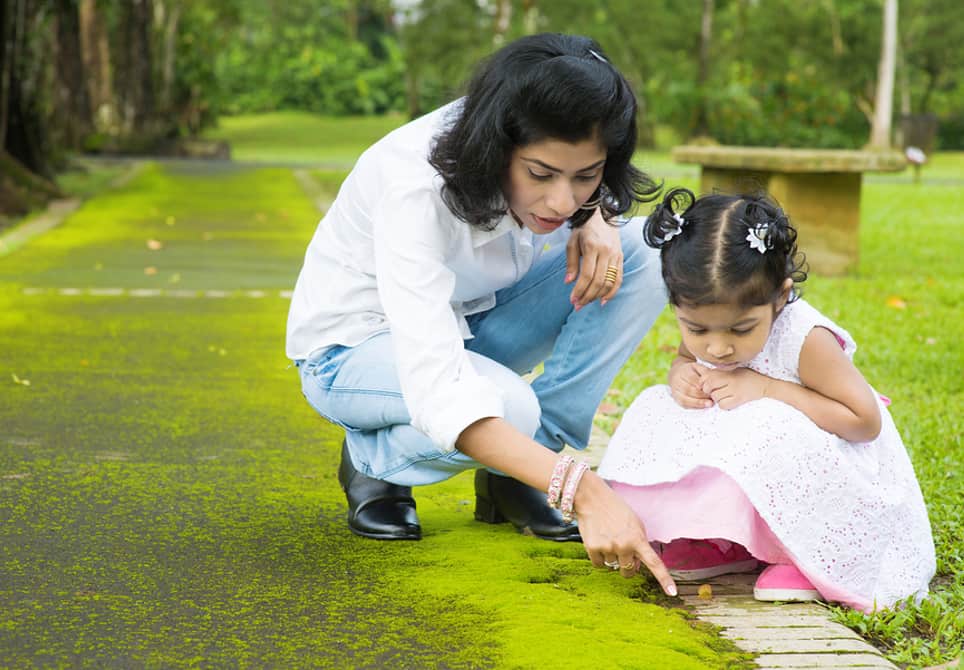Place-Based Learning: Wherever You Are, Whenever You Go

By Gary Gruber
In this modern day of high-tech, in-school learning, parents are rediscovering that there is an entire world outside of the formal classroom that is full of rich learning experiences.
Whether you call it homeschooling or unschooling doesn’t matter. What we are seeing is place-based learning, and it’s increasing everywhere. It does not have to replace traditional schooling, but it can. It can also enhance and enrich a school experience whenever a family explores the larger world. However, there are some families that are full-time “on the road” as part of a lifestyle.
You don’t have to go to another country, a national or state park or a visitors’ center or a museum, although most of those resources are readily available and rich with learning opportunities. There are also numerous other parks and natural resources in fields, forests, mountains, lakes and streams, deserts and beaches.
Remember too, your own backyards and gardens. Cities and towns abound with stories and people who are willing to share information and experiences. This is much better than a static, virtual world of a cold screen. (It may be that virtual reality will add a dimension to learning about the natural world. We’ll have to wait and see how that develops in the next few years.)
10 Questions to Guide Place-Based Learning
If you want to make this exciting, place-based learning part of your children’s education and as effective and productive as possible, consider the following questions and assess your children’s responses, and yours as well. As you engage kids, regardless of their age, take note of what happens and use that feedback for future learning.
1. Are they engaged mentally, physically and emotionally? Watch for and listen to how they are connecting to the experience. Discover their passions.
2. Do they want to continue the experience or the activity? It is sometimes a good idea to stop before they are exhausted or lose interest.
3. Would they like to repeat this experience, or come back another time and continue further on? Ask them directly for their own assessment.
4. What do they see that catches their attention and what would they like to know more about? Help guide them to more depth in learning.
5. What can they think of that might be related to this experience or another one that is different that they would like to explore? Suggest possible connections between topics or subjects.
6. Is this something where they would like to find more information from other sources and dig a little deeper? There may be a place you can go for some further research or more details.
7. What would they like to share with friends and relatives about what they are learning? Encourage them to write a story and send it to someone. Keep a copy for their files.
8. Is there someone they would like to meet with who might know more about this subject? There is bound to be an expert not far away.
9. Where else might they like to go to explore and discover something new and different? Keep a list with several options and consider them together.
10. How would they like to record their learning–with notebooks, journals, sketchbooks and/or cameras? Help them organize and arrange their reporting.
Inspiration From Around the World
Think of the disciplines of design and building, language arts (reading, writing, speaking, etc.) science, meteorology, math, social and cultural history, art, music, and how you can find each and all of these in the natural world. Use these opportunities to connect your children to their areas of primary interest and then use those as avenues to other subjects that may not be as appealing. You can find a comprehensive list of A to Z opportunities – architecture and anthropology to zoology and zymurgy.
A number of families in the U.S. and abroad are writing about their experiences, along with some of the challenges they face and how they manage to provide their children with some high-quality learning opportunities. Here are just six websites of many you can find on your own:
- Pocket Full of Pebbles: From the world view of a professional educator/parent.
- Unschool Me: Introduction to terms and answers to questions.
- I’m Unschooled. Yes, I Can Write. Personal testimony from a 20 yr old.
- Living The Education Revolution: One family’s journey in the UK.
- Raising Miro on the Road of Life: A documented international perspective.
- Unschooling Paradise: Self-directed learning with the world as a classroom.
My recommendation is to do your own research, find what appeals to you that you believe will meet your children’s needs (and yours) and enjoy the journey. It is full of glad surprises along the way and, while it will present its own peculiar challenges, I hope you will have a fabulous experience. Should you want additional information from a longtime educator, lifelong learner, parent and grandparent, feel free to get in touch.
This blog is part of our “Place-Based Education” blog series. To learn more and contribute a guest post for the series, check out the PBE campaign page. Join in the conversation on social media using #PlaceBasedEd. For more on Place-Based Education, see:
- 3 Ideas for Using Virtual Reality with Place Based Ed
- Teaching Empathy Through Place-Based Education
- Parenting, Learning and The Power of Place
- Expanding & Enriching Relationships in Place-Based Education
- Five Tips for Testing the Place-Based Education Waters
- 20 Schools and Networks That Educate With A Sense of Place
- Place-Based Professional Learning in the New Tech Network
- Project-Based and Place-Based Learning in New Tech Schools
- Genius Loci: Place-Based Education & Why It Matters
- The Power of Place
Gary R. Gruber, Ph.D. is a lifelong educator and author. You can find him on Twitter: @garygruber
Stay in-the-know with all things EdTech and innovations in learning by signing up to receive the weekly Smart Update.




0 Comments
Leave a Comment
Your email address will not be published. All fields are required.